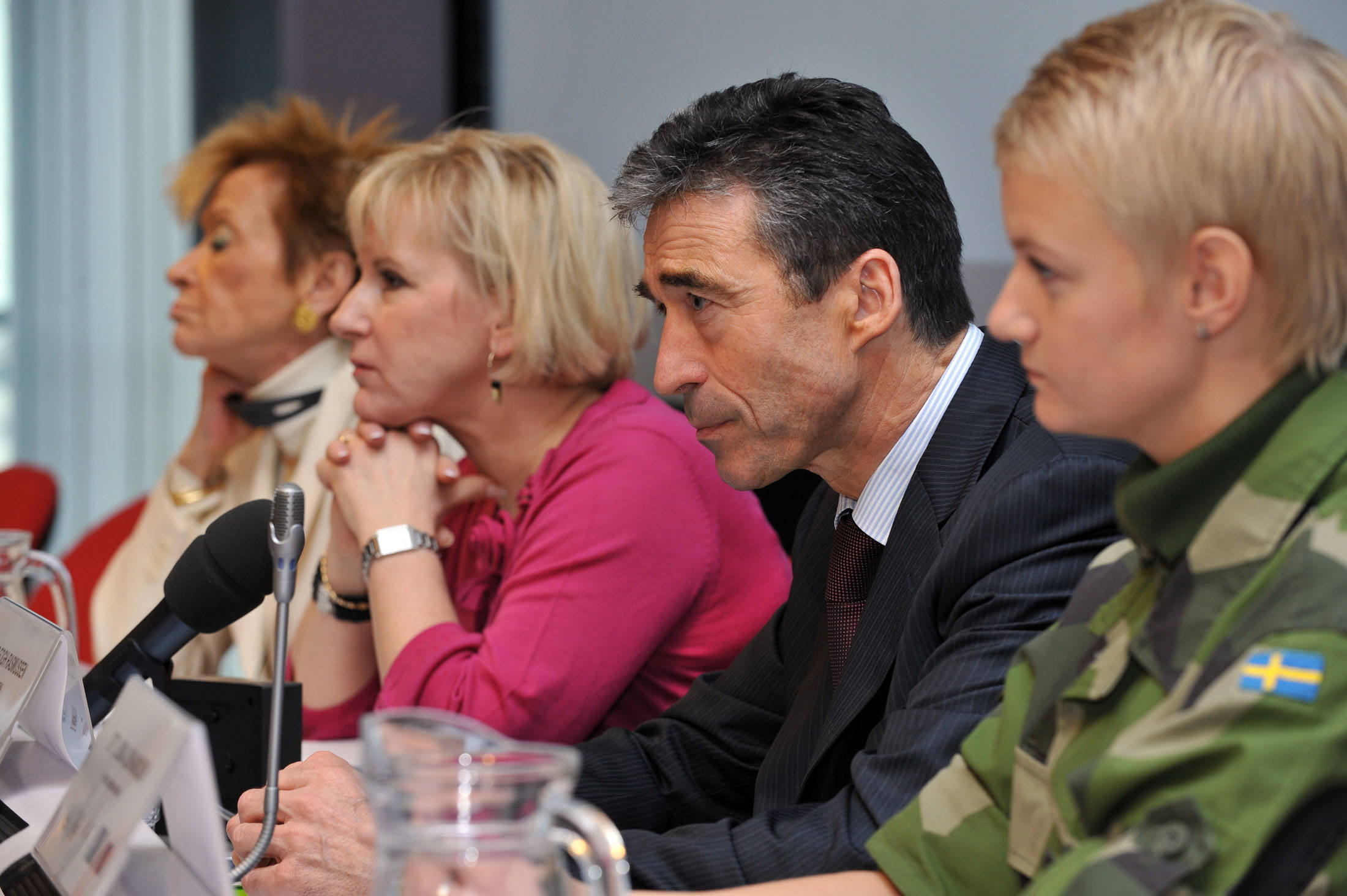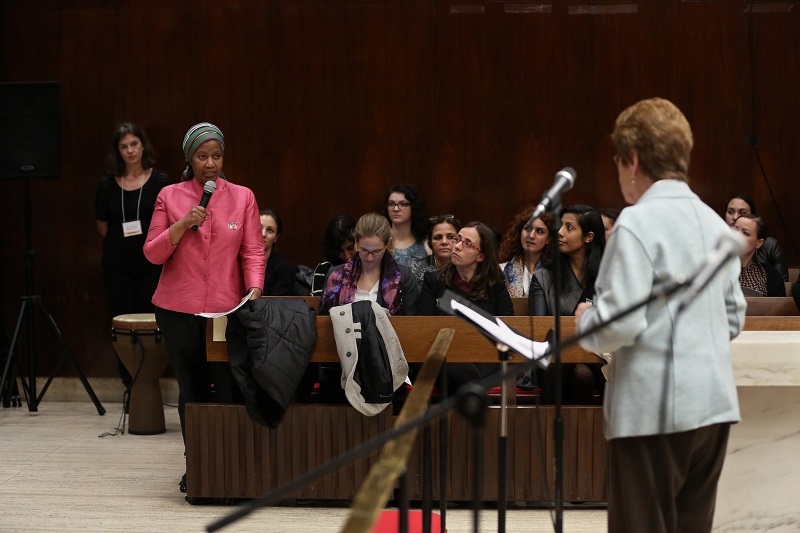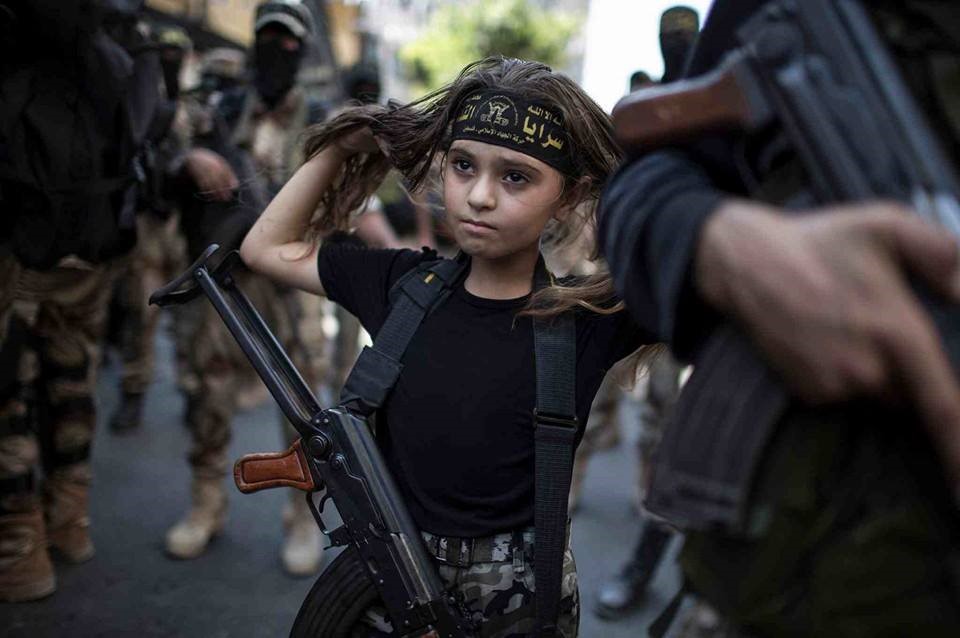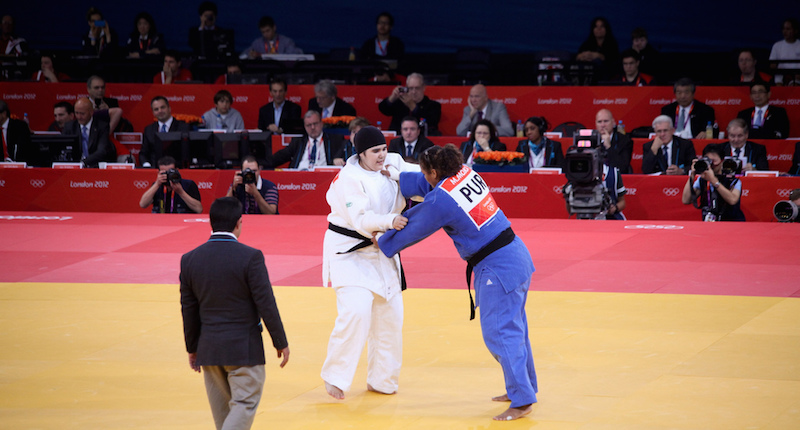NATO is a world-leading military organization, and it is one of the first international organizations to recognize, support, and incorporate women in decision-making processes. It is no exaggeration to say that societies all over the world are concerned about women’s security in developing countries, and certainly, NATO has done its part to ameliorate these conditions. This article takes the position that getting more women involved in NATO HQ and land-missions could help support NATO’s work on women and security. It outlines a series of real opportunities for women who wish to get involved with NATO in a professional capacity.
UNSCR 1325 Review
We often focus on the on-the-ground initiatives of NATO – for example, the ISAF women soldiers aiding women in Afghanistan – when we think about how NATO supports women’s rights in a global context. While these are crucial initiatives, it’s important that we don’t forget about the work that goes on “behind the scenes” at NATO HQ. It is in these roles at HQ that the presence, role, and input of women can be most productively felt. For example, in a recent review of the implementation of UNSCR 1325 by the Norwegian government on NATO, findings stated that only a few people at NATO HQ and in NATO-led operations were trained in gender initiatives. Further, the report noted that during mission training, only ten minutes were allotted to gender advisors to explain the UNSCR 1325. Strikingly, the review reported that many solders were unable to define gender, and that there remained vacant positions for gender advisors and other key managerial roles in the women, peace, and security initiative at NATO.
Such findings explain why many international programs haven’t achieved the minimum standards for peace, security and prosperity as regards the condition of women. We should not despair, but be ready to take new and informed action. Recall that the review stated UNSCR 1325 was adopted only 14 years ago which makes it relatively new for NATO countries; because of its newness, the future success of women’s initiatives lies in the hands of the next generation of young women. Having more women working with NATO could be one solution to better implement the goals of UNSCR 1325. Why not prepare yourself to be a global leader? You can start by immersing yourself in NATO policies to help support the success of UNSCR 1325?
[captionpix align=”left” theme=”elegant” width=”300″ imgsrc=”http://natoassociation.ca/wp-content/uploads/2014/02/NCC-women.jpg”]
Gender Advisors
One of the crucial roles that NATO plans to improve is the role of the gender advisor. The gender advisor works with both the strategic HQ and on-the-ground missions at NATO. She provides input to ensure that gender perspectives are incorporated and addressed in all NATO-led missions and policies. Currently, the gender advisor works closely with major operations, both in Afghanistan and Kosovo and in Supreme HQ Allied Powers (SHAPE).
In NATO-led missions, such as in ISAF and KFOR, gender advisors are positioned directly under the Chief of Staff and provide advice for gender leadership in the forces. Specifically, they advise commanders on gender issues, including the maintenance of gender diversity within NATO and between NATO forces and host countries. As of April 2013, the position of gender advisor was still vacant; enhancing the success of NATO’s missions depends in large part on filling this role.
Ideally, having both men and women in this position would benefit NATO and its missions, but certainly, if women were to take on this position, it would challenge a series of negative misconceptions and norms about the work of the military. For instance, gender advisors would advise commanders, who are largely male, and would be able to influence their decisions on questions regarding the best interest of women in host countries. Moreover, ensuring that commanders are incorporating gender training into their missions will create more sensitivity and awareness to the particular plight of women in war-torn areas. The position is ideal for someone who is interested in being a global leader and wants to see a future with more gender equality.
NATO Office on Gender Perspective
The NATO Office on Gender Perspective (NOGP) serves as the secretariat for the NATO Committee on Gender Perspectives, and advisor to Committee Chairperson. It provides information and advice on gender issues with the International Military Service (IMS). The office collects, analyzes, and disseminates information from NATO and Partner Nations regarding national programs, policy, and procedures on gender related issues, including UNSCR1325 and 1820.
The NOGP is directed by an executive committee which is made up of four elected females or male individuals. Importantly, the NOGP is the only committee with a female Chairperson, which makes this office another productive site for incorporating women into NATO’s global work. Finally, the position of the Special Representative for Women, Peace, and Security is another key leadership role in NATO. Mari Skåre was appointed to this position in 2012. Currently, she oversees and promotes the development of peace and security issues in NATO concerning women.
The positions outlined above are just a few of the many career opportunities with NATO that Canadian women can prepare for. Women in Canada need to assume more roles in international positions, especially ones which deal with safety, security, and prosperity of women abroad. In doing this, women can ensure that Canada becomes a NATO-member country that has successfully been able to contribute to international gender diversity and equality.




